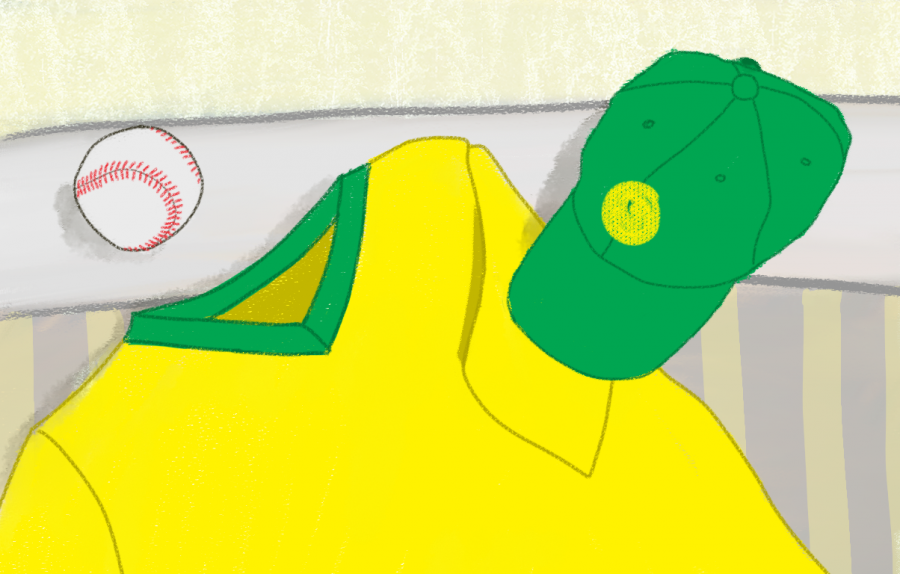Grear Patterson’s “Giants Being Lonely,” is an unapologetically raw and authentic representation of the challenging coming-of-age journey. The unmarked path from youth to adulthood leaves teenagers with numerous decisions that lead to long-lasting consequences. Even though teenagers are surrounded by other peers figuring things out, “Giants Being Lonely” exemplifies the loneliness that comes with navigating life.
The film depicts the arrival of summer authentically by mixing the sounds of crickets and wind howling alongside images of warm sunsets and bright green trees. But, for all the pristine beauty of Hunter Zimmy’s cinematography, Patterson maintains a frenetic beat pulsating beneath the warm visuals. High school is coming to an end, the Southern heat is suffocating, baseball is exhausting, the future is uncertain and the present is a bore; everything is happening all at once and nobody knows what to do about it. The teenagers in “Giants Being Lonely” are more than confused: they’re lost, befuddled and muddled, trying to find something to keep them motivated while life passes them by.
In capturing this conflux of confusion and transience, “Giants Being Lonely” distills aimlessness into snippets of visual wonder. Its placement of a lone teenager sitting in a field points to a sense of alienation; kids biking with nowhere to go, a sense of purposelessness; a teen stuck in his room, an ever-relatable claustrophobia. The teenagers in “Giants Being Lonely” are discovering who they are, who they love and who they want to be, all the while trying to make the most of their youth before it’s too late.
Bobby White (Jack Irving), one of the film’s leads, treasures the moments he has to himself as a way to escape the exhaustion of daily life. In one scenario, he lies exhausted in a gazebo; in another, he is chasing and hopping on the side of a moving train; and in another, he is quietly drifting along the water in a canoe. From these vignettes, it becomes clear that Bobby lacks direction. He finds himself drifting through life, trying to stay afloat to the best of his abilities.
Adam (Ben Irving), who plays the accompanying lead to Bobby, is more content throughout the film, accompanying his steps with smirks and excelling at the art of baseball. But as “Giants Being Lonely” unfolds, you begin to understand how lost and lonesome Adam feels too. Adam is physically abused by his father on a consistent basis while his mother turns a blind eye. Each member of the family is an island, entirely dissociated and disconnected.
The film’s third lead, Caroline (Lily Gavin), who acts as Adam and Bobby’s love interest, also struggles through adolescence. Her introduction sees her getting kicked out of her mother’s car on the way to school. Caroline is at war with her family and only smiles whenever she’s around either Adam or Bobby, immersing herself in activities such as roller skating that allow her to forget the boiling discomfort of being home. But as soon as she gets home, her face goes blank. Adults terrify her, and the prospect of becoming one feels like a death sentence.
It’s clear that these kids are not equipped to handle adulthood. They cannot take care of or provide for themselves. They have no decent adult role models to help them adjust to the changes they face as teenagers, and as such, they envision their transition into adulthood as a damnation of sorts.
Despite being a first-time director, Grear Patterson never lets the film become stale. He captures the flawed vulnerability of his characters via a naturalistic cinematic structure that always emphasizes their voices. Nothing feels fabricated, and Patterson does not beat around the bush when it comes to sensitive topics, providing the film with a degree of depth that allows it to stand out in the sea of coming-of-age films.
Email Sixx Orange at [email protected].

























































































































































Wanda harris • Apr 23, 2021 at 11:06 pm
I am not familiar with this film however, I really enjoyed the critic. It was insightful and It educated me and made me curious in seeking out the production. Very well written Sixx Orange. I would like to read more from you.